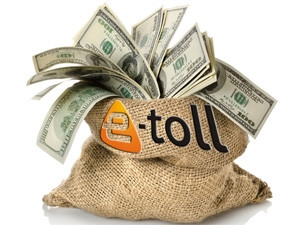
The South African National Roads Agency (Sanral) has cited a 2010 University of Cape Town (UCT) study in a bid to convince Gauteng road users that e-tolling is not only necessary, but that it will also significantly improve the economy and make travelling "more pleasant" for them.
This comes as government continues to plug the publicly contested open road tolling project, and the roads agency persists in its efforts to get road users "tagged".
Sanral spokesperson Vusi Mona says the view that e-tolling will both benefit the economy and make motorists' lives easier is not "just a Sanral view", but one that is underpinned by a UCT Graduate School of Business study conducted three years ago.
Mona says the study is in line with Sanral's insistence that road improvement projects will be implemented more rapidly with the institution of e-tolls.
Economic boon
"[The study] says very clearly: 'International research experience suggests that, in addition to normal accessibility improvements, businesses in a growing economy like Gauteng would benefit from increased efficiency in their labour markets. This may add 30% to 50% extra to conventionally assessed benefits."
Inhabited by almost a quarter of SA's population, Gauteng has been dubbed the economic heart of the country. Sanral says tolling the province's roads will grow its economy substantially.
Mona says UCT's report corroborates this notion by pegging road improvements as an economic driver. "[The report says improved roads will lead to] additional growth and 'as a result, there would be substantial job- and business-creating impacts over and above those associated with the construction contracts themselves'."
Sanral says e-tolling will ultimately be a panacea for SA's faltering economy. "Every bit of extra advantage for businessmen is a matter of great importance. So it is with the improvement of the inner-Gauteng highways."
The agency says the university report states Gauteng's freeway network was based on "sound economic principles" and that it would give society a positive net present value of R210 billion over the next 20 years.
"For each rand of cost, initial capital works, ongoing maintenance and costs, society benefits by R8.40. Tolling pays," concludes Mona.
Political proxy?
Meanwhile, amid the state's intensifying e-toll campaign, the Opposition to Urban Tolling Alliance (Outa) is gearing up for its appeal against a December ruling that gave e-tolling the green light. The appeal will be heard in the Supreme Court of Appeal, in Bloemfontein, on 25 and 26 September.
While the Department of Transport maintains the appeal is irrelevant to the imminent implementation of e-tolls, Outa believes its fight against what it says is an unjust, impractical and exorbitant exercise is necessary to show government that society will not stand for being run roughshod over.
Last week, after Outa publicly appealed for financial assistance in its legal fight against e-tolls, the Democratic Alliance (DA) said it would give R1 million to the cause - a move met with ambivalence by Sanral.
The roads agency last week said it welcomed the DA's donation in light of the importance of Outa being able "to face [Sanral] in court".
However, Sanral criticised the opposition party for politicising an issue that is "essentially about infrastructural and economic development".
Mona says the DA's move makes Outa its "political proxy", and that Outa's anti-e-toll campaign has been characterised by "misinformation disguised as active citizenry".
Outa and other allied opponents to government's e-tolls have recommended various other means of funding the Gauteng Freeway Improvement Project - including a fuel levy - but Sanral maintains e-tolling is the only viable option in terms of sustainably financing the freeway network.
In a statement yesterday, Sanral said tolling is being implemented on a "very small percentage" of the national roads the agency manages. The rest, says Sanral, is funded by the state fiscus.
Share